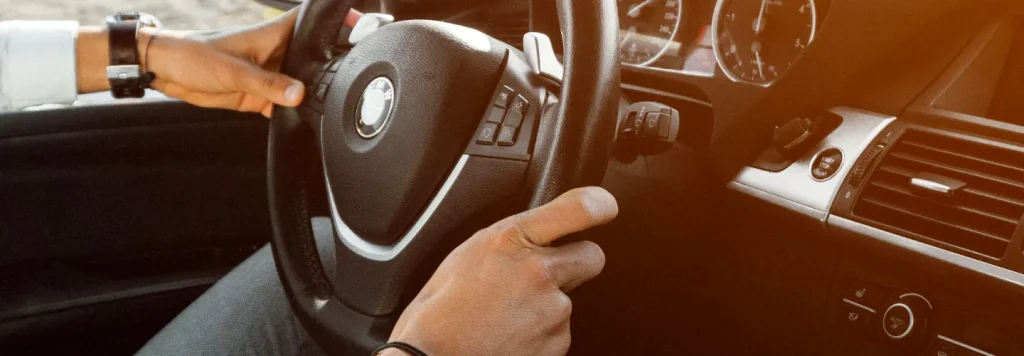Ready to meet with your rep to get the answers to your car insurance coverage questions? Be sure these few accident protection questions are on your list.
We’ve already talked about the benefits of reviewing your coverage with a car insurance representative to make sure you’re covered for everything you could need. If you haven’t checked out that article, you can do so here. But, now let’s explore some of the important things to ask your rep relating to accidents and your protection in the event of one.
With the help of Travelers Insurance, let’s dive into the big car insurance coverage questions you should be asking your rep regarding accident protection. Remember, your insurance rep is an invaluable resource that’s here to help keep you covered.
1. What is Covered if My Car is in an Accident?
Without adequate car insurance, you may be left to deal with towing, repairing, or replacing your car in the event of an accident. However, in order to ensure some level of protection, it’s critical to have liability insurance. This insurance typically pays for damage to another driver’s vehicle or someone else’s property if you cause an accident, and is the minimum coverage required in most states. And, as mentioned in our previous article, you would need collision coverage for accident-related damage and comprehensive coverage for non-accident incidents (theft, vandalism, hitting an animal, storm damage, etc.).
Be sure to ask your insurance rep whether optional coverages like roadside assistance and rental reimbursement are right for you.
Another important coverage to discuss with your rep is uninsured/underinsured motorist insurance, which can help pay for damages and medical expenses if you get hit by a driver who has no insurance or inadequate coverage.
If you have a lease or loan on your car, ask your insurance rep about gap insurance, too. This coverage may pay the difference between what your car is worth and what you still owe on it if your car is totaled.
2. What is Covered if My Car is in an Accident and Someone is Injured or Dies?
Protecting drivers, passengers, and pedestrians who are injured — or worse — in an accident is a top priority. That’s why bodily injury liability insurance is the most important auto coverage a driver can have, covering accident-related expenses such as hospital and medical bills, lost wages, rehabilitation, and legal fees.
While bodily injury liability insurance is a requirement in most states, the minimum level of coverage may not offer adequate protection. Discuss policy limits with your insurance rep before purchasing car insurance. Remember: you will be personally responsible to cover any costs above this limit.
Ask your insurance rep to help you determine your need for additional coverage options and protections, too. Depending on where you live, these can include:
- Personal injury protection.
- Medical payments coverage.
- Uninsured/underinsured motorist coverage.
- Total disability.
- Work/income loss coverage.
- Accidental death benefits.
- Funeral expense coverage.
- First party benefits.
3. What Costs Will I Need to Cover “Out-of-Pocket” if I Am in an Accident?
How much you will pay out-of-pocket for accident-related expenses depends on your policy limits, coverages, and deductibles, as well as the specific circumstances of the incident.
If you did not cause the accident, the driver who did — and his or her insurance company — is typically responsible to pay for any resulting damages or injury. However, if the at-fault driver has no insurance or is underinsured, you may be left holding the bill. Ask your insurance rep what you can do to ensure your policy will protect you in this situation, such as adding collision or uninsured/underinsured motorist coverage.
If you are at fault for an accident, your insurance typically provides coverage for repairs, medical, legal, and other related expenses up to your policy limits once you pay your deductibles. For example, let’s say your car is damaged in a covered accident you caused, you have collision coverage with a policy limit of up to $10,000 and your deductible is $2,000. If the cost to repair your car is $1,500, you will pay the entire $1,500 since it is less than your deductible. If the cost to repair your car is $8,000, you will pay your deductible of $2,000 and your insurer will pay the remaining $6,000. If the cost to repair your car is $12,000, you will pay $4,000 (your deductible, plus the $2,000 above your policy limit) and your insurer will pay $8,000.
To keep monthly premiums low, drivers often opt for higher deductibles and lower policy limits. But if you can’t pay your deductible or accident-related expenses above and beyond your policy limits, you may find yourself in a financial crisis. Before purchasing any policy, have your insurance rep go over all the scenarios with you. Work together to create a policy that balances your individual needs with a premium, deductible, and policy limit you can afford.
We hope you reference these car insurance coverage questions when talking to your rep to ensure you have the coverage you need. If you’re in the greater Rochester, NY area, reach out to The Feltner Group to set up a consultation to discuss car insurance or any other type of insurance you may need. As independent brokers, we’re all about helping you get the coverage you need at a price you’ll love.
